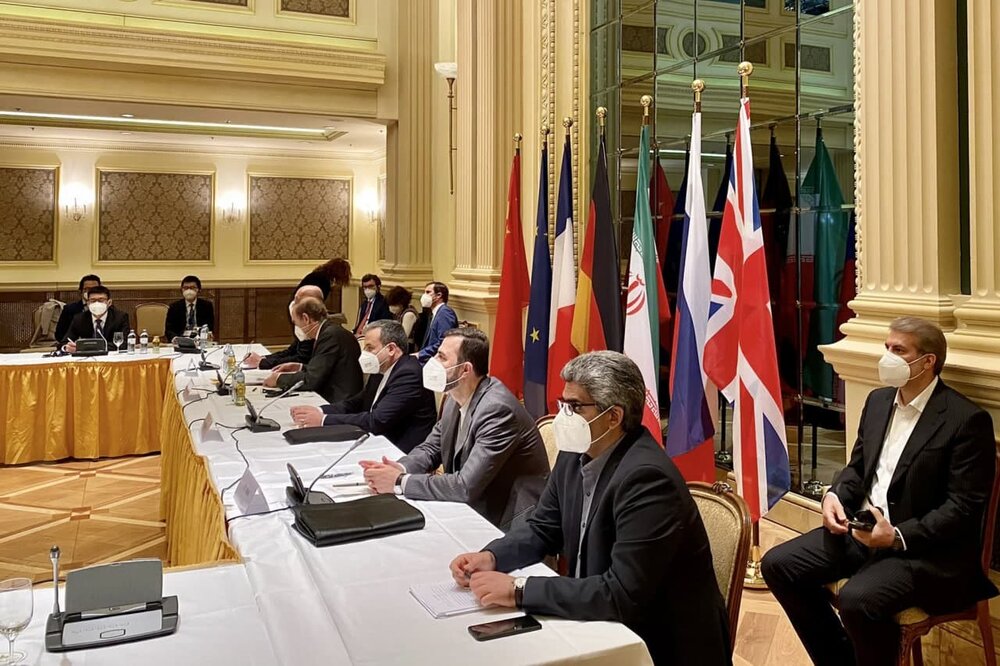Definite policy

TEHRAN – As Iran and the remaining parties to the tattered 2015 nuclear deal resumed their work on Tuesday, several press reports resurfaced that Iran and the U.S. could proceed with a step-by-step plan to revive the nuclear deal.
But these reports stood in contrast to the policy declared by high-level Iranian authorities that the nuclear deal, officially known as the Joint Comprehensive Plan of Action (JCPOA), must be revived in one major step.
From the outset, there has been a wave of speculations on social media platforms over how the JCPOA would be revived. Some said the nuclear deal should be revived by convincing the United States to lift all of its sanctions on Iran and then encourage Iran to reverse its remedial nuclear measures while others speculated that a gradual process is needed to revitalize the JCPOA, one that would see both Iran and the U.S. taking simultaneous steps to gradually return to compliance with the JCPOA.
These speculations intensified over the past few weeks as Iran and the P4+1 (China, Russia, France, and the UK plus Germany) entered the stage of drafting an agreement on how Tehran and Washington would return to the JCPOA.
The Washington Post reported on Monday that Iran and the U.S. are moving toward what can be called a step-by-step plan to revive the JCPOA. Citing officials familiar with the Vienna talks, the American paper claimed, “both Iran and the Biden administration — which initially made a similar demand that Iran act first by returning to compliance with the original terms of the deal — are moving toward simultaneous, sequential steps.”
It also noted that Iran wants all sanctions initially lifted as part of the agreement but reimposed by Trump, along with an estimated 1,500 new measures his administration adopted as part of its “maximum pressure” campaign, to be removed.
Iran has made it clear that it wants all U.S. sanctions to be lifted but it said the lifting of the sanctions should be done all at once, thus ruling out any gradual or sequential steps.
The Leader of the Islamic Revolution, Ayatollah Seyed Ali Khamenei has stated that Iran has a definite nuclear policy that will guide Iranian negotiators.
“The country’s policy on the interaction with the JCPOA sides and on the nuclear deal itself has already been explicitly declared. This policy will not be violated in any way. It is a policy which has already been announced and which is adopted with everyone’s agreement. It is not the case that this policy was an exception to other policies. Everyone has agreed to it,” the Leader said in a televised speech on March 21.
“This policy is that the Americans should lift all sanctions. After that, we will verify. If the sanctions have been lifted, we will return to our JCPOA commitments. We will return without any problem. This is a definite policy. We do not consider American promises to be valid. If they say that they will lift them on paper, this is of no use. What is necessary is action! They should lift the sanctions in practice. Subsequently, we will verify their statements to make sure that the sanctions have been lifted. Then, we will resume our commitments,” he continued.
This position is of particular importance given the fact the Vienna nuclear deal talks have reached a point where the negotiators need to make decisions. Following the Tuesday meeting of the JCPOA Joint Commission, top Iranian nuclear negotiator Seyed Abbas Araghchi said negotiating teams will return to their capitals and then resume their work next week.
So it’s quite possible that the Iranian team will brief high-level officials on the outcome of the recent rounds of the Vienna talks. Araghchi said the Iranian negotiating team reports on the status of the talks to senior officials on a regular basis and that the fate of talks will be determined in Tehran.
But Tehran is clear about what wants. The Leader made it crystal clear that the U.S. must lift its sanctions first and then Iran will return to commitments after verifying the lifting of sanctions.
Therefore, the Iranian delegation is likely to return to Vienna next week with the determination that the definite policy outlined by the Leader should be implemented.
It’s too early to say that this policy is going to lead the Vienna negotiation to the endgame, which is the lifting of the U.S. sanctions all at once. But indications from Vienna suggest that the talks may be moving toward that goal.
So far, the Vienna talks have resulted in the establishment of two expert-level working groups, one to identify the sanctions that the U.S. should remove in order to return to the JCPOA, and another to specify the nuclear activities that Iran should reverse. These groups report their discussions to the Joint Commission.
Following the Tuesday meeting, Araghchi said the remaining parties to the JCPOA have decided to establish a third expert-level group next week to discuss practical arrangements required to lift the U.S. sanctions and realize the U.S. return to the JCPOA.
However, the top nuclear negotiator warned that Iran will stop the Vienna talks if the process of discussions tilts toward bullying, bargaining, and wasting time.
Araghchi described the Tuesday talks as “difficult and challenging” but said they are moving forward.
During the meeting of the JCPOA Joint Commission, Araghchi said, the negotiators discussed the latest technical talks, preliminary drafts, and how to continue the talks.
Leave a Comment